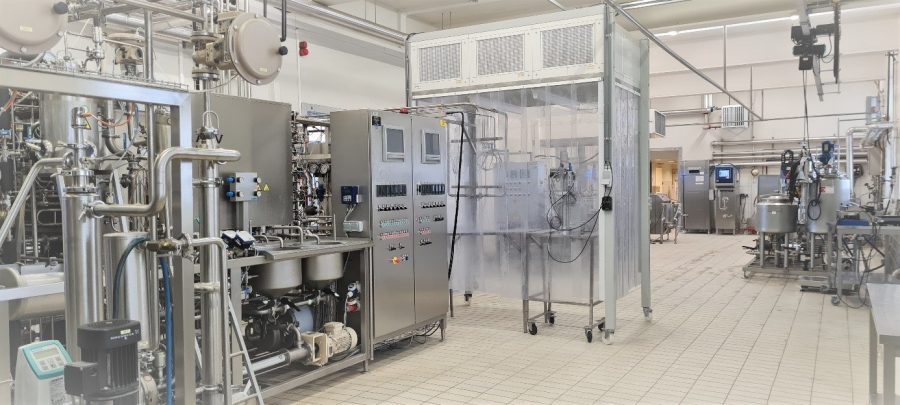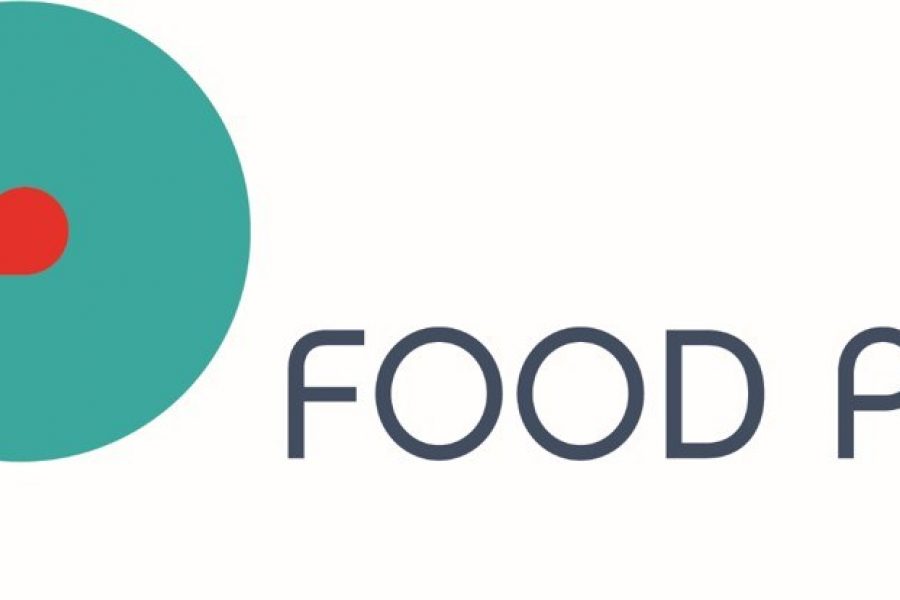Press release Capacity of Food Pilot in Melle now enhanced: Additional testing hall and 7 new pilot devices to better advise companies.

The Food Pilot is experimenting more and more with highly innovative raw materials or products. Among other things, the extraction of protein from new sources (all kinds of plants, insects, algae), and then further processing, is a rapidly growing field of research.
Often the amount of raw material in that case is small, because the alternative (protein) sources themselves are still in the exploratory phase of primary production. The amount of protein that is extracted from these sources is so small that the necessary initial processing tests are not feasible at a true pilot scale.
In order to experiment innovatively also with small amounts of (protein-rich) raw materials, the Food Pilot will have a unique extra space with small-scale innovative yet commercially interesting equipment. The test equipment can already perform operations with quantities between 0.5 and 5 kg of product. In this way, the researchers are meeting the demands of SMEs.
The Innolab project in question receives €512,000 in funding from the ERDF. The Province of East Flanders is co-financing. ILVO and Flanders' FOOD will be ready with the new installations and a new test hall by the end of 2023.
Food Pilot
For more than 10 years companies have been testing new recipes, ingredients or production processes in the Food Pilot, the test center of ILVO and Flanders' FOOD. To this end, they make use of a wide range of pilot devices, lab analyses and advice. It is a unique test environment for Flanders and abroad. Up to 550 pilot tests are carried out in the Food Pilot each year, leading to concrete realizations for customers. In early 2022, the Food Pilot will have more than 50 semi-industrial units, a test kitchen, a taste lab and 8 analysis laboratories.
Which small-scale devices for operations from farm to fork
Through this project, specific investments will be made in small-scale equipment for washing, cutting, grinding, separating, drying and shaping protein raw materials. The steps before protein extraction are equipment for the pretreatment of raw materials. The steps after extraction lead to product development.
For the first raw processing of raw materials, a washing and cutting line is purchased, on the smallest pilot scale.
From the same scale, a separator machine is purchased, for stripping hard parts (peel) and mashing fruits. In this way, raw materials can be treated prior to protein extraction.
A flake roller is purchased to transform the material to be extracted into flakes, which make better contact with the extraction media due to their larger product surface area.
The protein extraction line already present in the machine park offers possibilities to extract in different ways. It consists of reaction vessels, a decanter, centrifuge and filtration equipment. Less voluminous bulk protein extraction can also be done with it. This is important because certain further food processing operations place high demands on the protein powders. The commercially available protein powders show little variation and also shortcomings in that respect.
On the very smallest scale, there is the purchase of a lab-fluidized bed dryer, for drying granular products, and suitable for a batch volume of 0.5 to 5 kg. This device is a good complement to the lab spray dryer and lab extruder with high moisture extrusion already in place.
The steps following protein extraction lead to product developments. A versatile kitchen robot is purchased for making mixes.
Meal replacement bars
The new hall of the pilot plant will also house a bar-making machine for the first time. With this, the Food Pilot responds to the increasing demand from companies to develop protein-rich bars and healthy snacks.
Growing along with the client
The new pilot and lab devices not only answer the needs for more versatile experimentation around alternative proteins. They also represent a new opportunity for innovative start-up companies. "They are looking for equipment exactly of this scale for starting their first commercial production."
Conclusion
The renovation of the new hall on the Food Pilot site between the pilot plant and the lab building provides the necessary space to start working with the new test area.
In combination with the other pilot units in the Food Pilot, it will be possible after the purchases, even more than today, to simulate complete processing of various (protein-rich) raw materials into new end products.These end products can be found in almost all food subsectors: fruit and vegetables, meat, bakery, dairy, prepared meals, and so on. Just think of new snacks, bars or drinks.


Mede gefinancierd in het kader van de respons van de Unie op de Covid-19-pandemie


